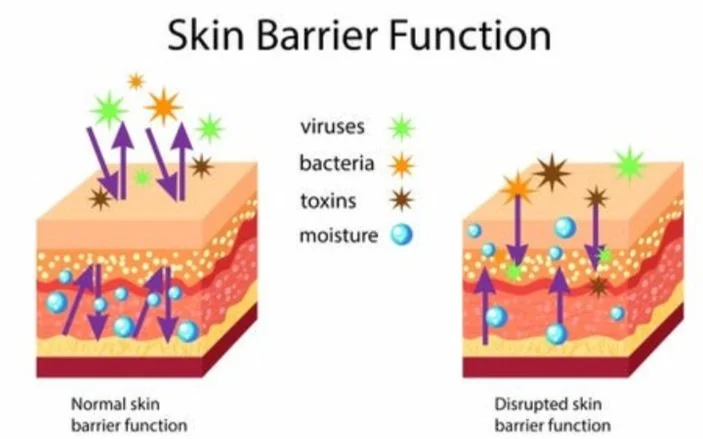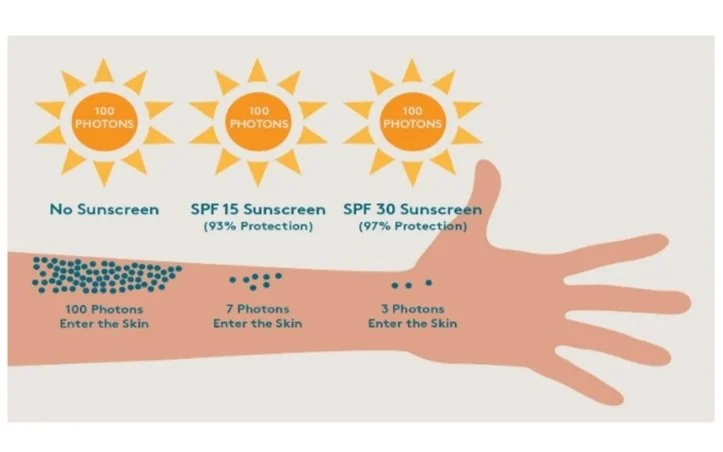The Importance of Good Skin Care: Taking Care of Your Body's Protective Shield
Skin is much more than just a superficial layer that covers the body. Our skin is actually a vital organ, in fact the body's largest organ, and acts as an important barrier between internal organs and tissues and a wide variety of threats from our external environment. That being said, taking care of your skin is not just a cosmetic concern, but an essential aspect of health and well-being and should be a regular part of your daily routine.
The skin is composed of water, protein, fats, and minerals and, as our “outer covering”, protects the internal body from pathogens, such as, bacteria, viruses, and other microorganisms that could cause infections or illnesses. It also acts as a shield against toxins, pollutants, and UV rays that may cause damage to internal organs. Additionally, skin plays an essential role in regulating body temperature through processes like sweating and vasodilation. And there are nerves present in the skin that allow us to feel sensations, such as, hot and cold which serves as a means of protection from burns or frostbite.
A good skin care routine is important and necessary for maintaining skin integrity and elasticity, preventing wrinkles, and promoting younger, healthier looking skin. In addition, the goal of a good daily skin regimen is to prevent conditions, such as acne, eczema, or dermatitis, that can cause irritation or discomfort. Regular and very basic skin care routines should include daily cleansing, toning, and moisturizing (in the a.m. and p.m.), as well as, the use of sunscreen protection.
The primary goal with regard to protection from UV rays is prevention of disorders, such as basal or squamous cell carcinomas or melanoma. With this in mind, changes in the skin's appearance, such as new moles, discolorations, or unusual textures, can sometimes indicate an underlying problem, that if left untreated can be fatal. Therefore, regular skin checks should also be a part of good skin care for the purpose of early detection of potential issues allowing for prompt medical intervention. It's much easier to detect skin changes when a thorough baseline has been established. That being said, it’s always advisable to start yearly skin exams with your primary care doctor or a dermatologist before you have a serious problem.
With specific regard to protection from the sun, using a good sunscreen (at least 30 SPF), as well as, the use of hats and light outer covering, is particularly important as we are in the midst of the summer season when most of us spend more time outdoors and the sun’s rays are stronger and longer each day. The incidence of melanoma is on the rise and can be fatal. Applying sunscreen every time you are outside in the sun is a good habit to develop for yourself and your loved ones.
In terms of a daily regimen, deciding on a good skin care routine can be rather overwhelming, not to mention costly, with the multitude of products available today. We all have different skin types so developing an appropriate skin care regimen should be tailored to individual needs and what works best for your skin type. There are many affordable products out there and you do not need to spend exorbitant amounts of money for products that provide adequate care. Another important point to mention, good skin care does not just mean taking care of your face but the entire body. Similarly, good skincare is not only necessary for women, but for men as well!
Contrary to what many people think, skin care is not just about one’s outer appearance and “looking good”. Taking care of your skin, just as you would your heart, lungs, and other vital organs, is a fundamental aspect of maintaining good health. Our skin is a multifunctional organ that deserves attention and daily care in order to fulfill its protective, regulatory, and sensory roles. Establishing a consistent skin care routine is one of the best ways to ensure that your body's “protective shield” remains resilient and effective throughout your life.
Courtesy: Barbie Kelly, BSN, MSN, CRNA



